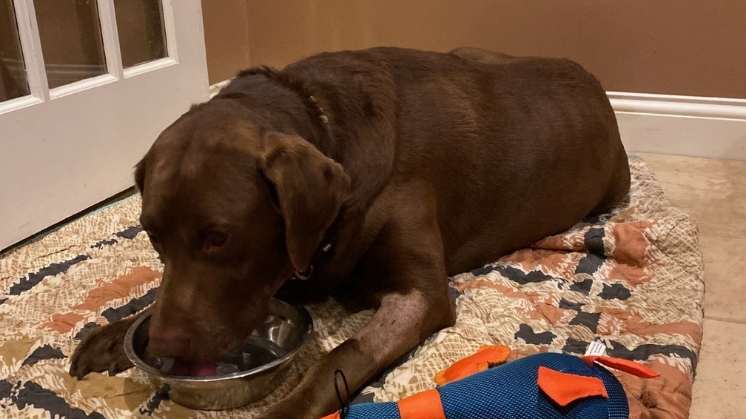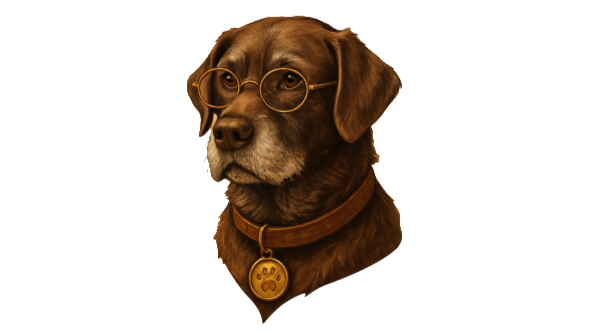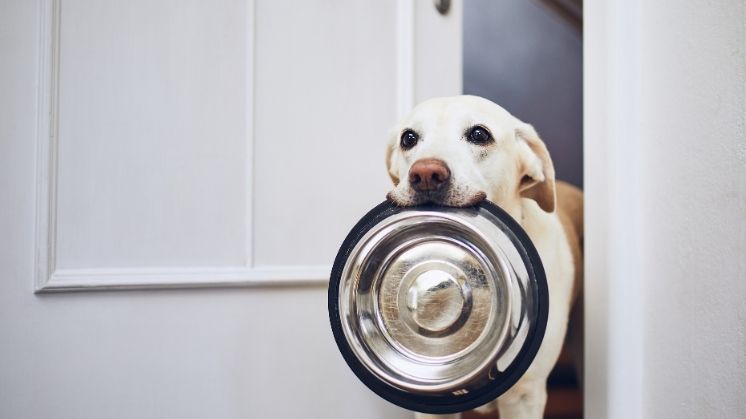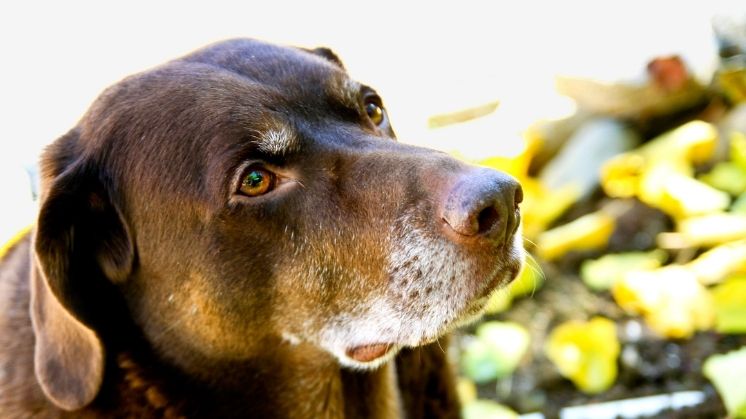
When Our Labrador Retriever Gus Became "The Miracle Dog"
A Christmas Spinal Injury Story
My wife and I are approaching retirement age, and as empty nesters, our holidays now revolve around visits from our three adult children, five grandchildren under age five, and our "grand dogs." What started as a typical chaotic Christmas gathering turned into a life-changing experience with our chocolate Labrador Retriever, Gus.
The Night Everything Changed
On Christmas Eve, I took all the dogs for their usual nighttime walks. Everything seemed normal. Later that evening, I noticed Gus had retreated to his crate – unusual behavior for our social seven-year-old chocolate lab who typically thrives on attention from visiting family.
Something felt wrong. When I went to check on him, Gus didn't want to be petted – an immediate red flag for any Labrador retriever owner. As I tried to examine him, I could tell he was in pain, though I couldn't determine the cause. Even my two-year-old granddaughter sensed something was amiss and crawled into the crate to comfort him.
The Holiday Weekend Challenge
Living in Southeastern Kentucky, we faced a common rural dilemma: no 24-hour veterinary services nearby. The closest emergency vet was 150 miles away in Louisville, with a warning of hours-long waits. Since Gus appeared comfortable lying still and wasn't showing signs of severe distress, I made the difficult decision to wait until after Christmas.
Christmas morning revealed the severity of his condition. Gus couldn't stand up, and attempting to move him caused visible pain. At just over 100 pounds, getting him outside required significant effort. Once outside, I discovered he had lost all bladder and bowel control – a serious warning sign for any senior Labrador retriever owner.
The Devastating Diagnosis
Getting Gus to the veterinarian required careful planning. With my daughter Courtney's help, we transported him in her Nissan Rogue, and the vet staff used a cart to move him inside.
The diagnosis was shocking: Gus had fractured his seventh lumbar vertebra (L7) and lost all control of his bladder and bowels. The veterinarian suspected spinal cord damage and gently warned us that euthanasia might be our only option.
After two days at the clinic, both the vet and I agreed Gus might recover better at home. When he saw us coming to pick him up, he tried to walk toward us – a sign that this determined Labrador retriever wasn't ready to give up.
The Long Road to Recovery: What Senior Labrador Retriever Care Really Means
The veterinarian warned me that caring for Gus would become a full-time job with no guarantee of recovery. Here's what the next eight weeks looked like:
Daily Care Routine
- Constant cleaning: Two mop buckets on duty 24/7
- Multiple daily baths: I rigged hot water to a garden hose for deck bathing
- Sleeping arrangements: I slept on an air mattress beside his crate every night
- Bathroom trips: Every two hours, despite continued incontinence
- Specialized equipment: Dog diapers (minimally effective) and non-slip socks (which he hated)
The Emotional Toll
Watching a typically vibrant Labrador retriever struggle with basic functions was heartbreaking. Gus would look back with confusion as he left a trail of urine and feces, clearly aware something was wrong but unable to control it.
Solving the Mystery: How Senior Labrador Retrievers Can Get Injured
The veterinarian initially suspected Gus had been hit by a car due to the severity of his spinal fracture. However, I knew that hadn't happened. It took six months to solve the mystery.
When Gus began using the stairs again, I noticed he would freeze at the sixth step from the foyer whenever other dogs were present. If alone, he navigated stairs normally. With other dogs around, he descended one careful step at a time.
The revelation: During the holiday chaos, Gus likely fell down the stairs with his back legs spread and another dog landing on top of him – exactly the type of impact that could cause his L7 fracture.
Gus Today: The Miracle Recovery
Eighteen months later, Gus has recovered approximately 90% of his function. Every employee at his veterinary clinic still calls him "The Miracle Dog." While he occasionally dribbles urine and has minor bowel control issues once or twice weekly, he's returned to most normal activities.

"Sometimes the best medicine comes in the smallest packages. Our granddaughter Kennedy instinctively knew Gus, our injured Lab, needed extra comfort during his recovery."
Current challenges:
- Weight gain (now 142 pounds) due to reduced activity and medications
- Slower movement and earlier fatigue during walks
- Selective energy for fetch – some days he's enthusiastic, others he simply lies down
Critical Lessons for Senior Labrador Retriever Owners
Watch for Warning Signs
- Reluctance to be touched (especially unusual for social Labs)
- Hiding or seeking isolation when normally social
- Difficulty standing or walking
- Loss of bladder or bowel control
Stair Safety Matters
We watch toddlers on stairs but often overlook our dogs. Multiple large dogs playing together near stairs can create dangerous situations, especially for senior Labrador retrievers whose joints may be more vulnerable.
Recovery Is Possible
With dedication, proper veterinary care, and realistic expectations, even severe spinal injuries in senior Labrador retrievers can have positive outcomes. However, be prepared for:
- Intensive daily care requirements
- Significant time and financial investment
- Gradual recovery measured in months, not weeks
- Potential permanent limitations
When to Seek Emergency Care
Don't wait if your senior Labrador retriever shows:
- Sudden inability to stand or walk
- Loss of bladder/bowel control
- Signs of severe pain
- Reluctance to move or be touched
While our rural location limited immediate options, seeking veterinary care as soon as possible is always the best choice.
Final Thoughts
Gus's story reminds us that senior Labrador retrievers can face unexpected health challenges, but with proper care and determination, remarkable recoveries are possible. Every situation is different, but never underestimate the resilience of these amazing dogs – or the lengths we'll go to help them heal.
 Kennedy and Gus a year after his injury.
Kennedy and Gus a year after his injury.
📸 Photo Credits: Featured images in this article were taken by website owner, Don McFadden



